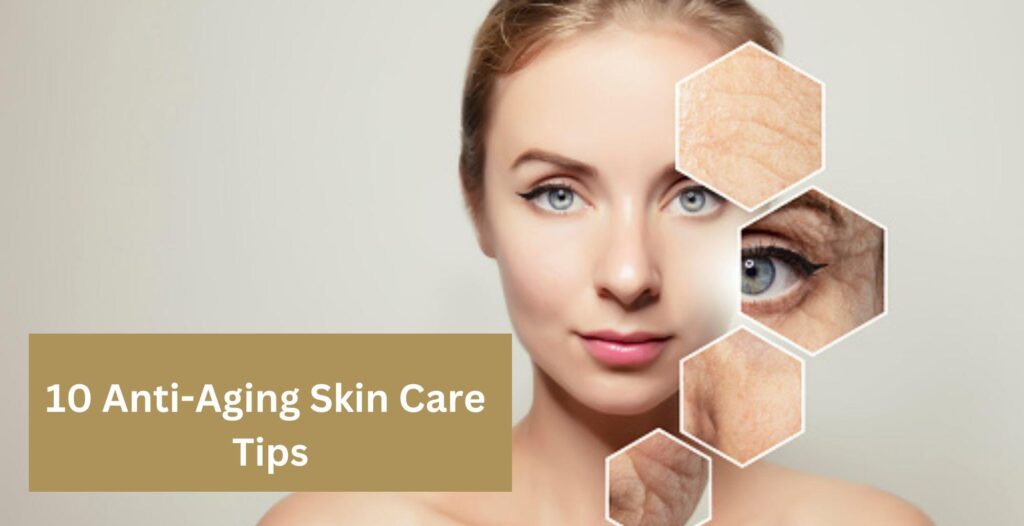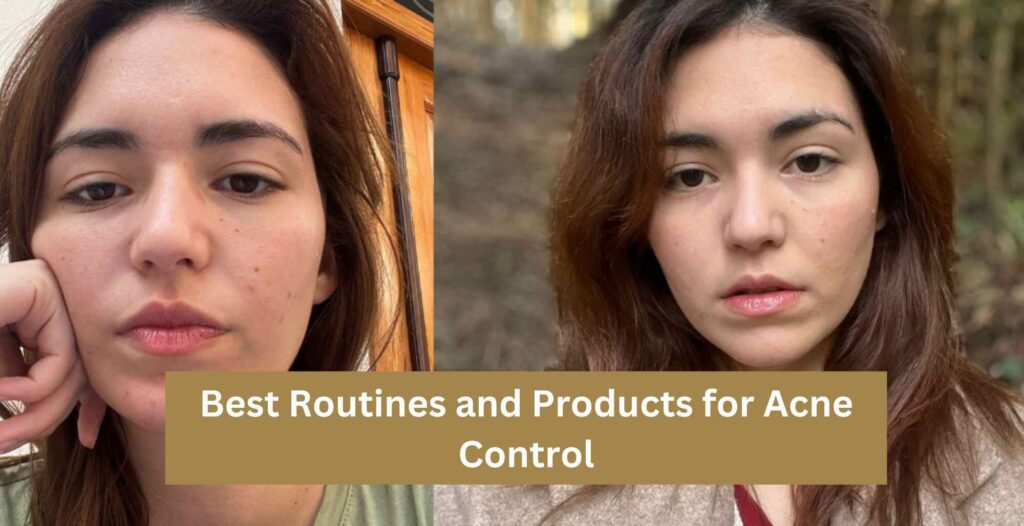Speaking of skin types, people sometimes refer to the terms dewy skin and oily skin. Actually, what is the difference between the two? Let’s go into detail and learn what actually sets the two apart. Knowing the difference will help you tailor a great skincare routine for your complexion.
While both “dewy skin” and “oily skin” may have a little shine on the skin, the major difference between them is that dewy skin looks naturally hydrated, with a soft, subtle glow, while oily skin looks greasy and shiny due to too much oil emanation from pores, sometimes with big pores, especially on the T-zone; dewy skin is pursued, whereas oily skin is considered a problem that must be brought under control by some product.
Table of Contents:
Understanding Skin Types
What is Dewy Skin?
Dewy skin maintains a natural, radiant kind of glow. It is actually all about having healthy and well-hydrated skin. In fact, dewy skin can be achieved by any person through good skincare habits and the right product combination. It is not supposed to be similar to that of oily skin, in which the skin appears all shiny and greasy.
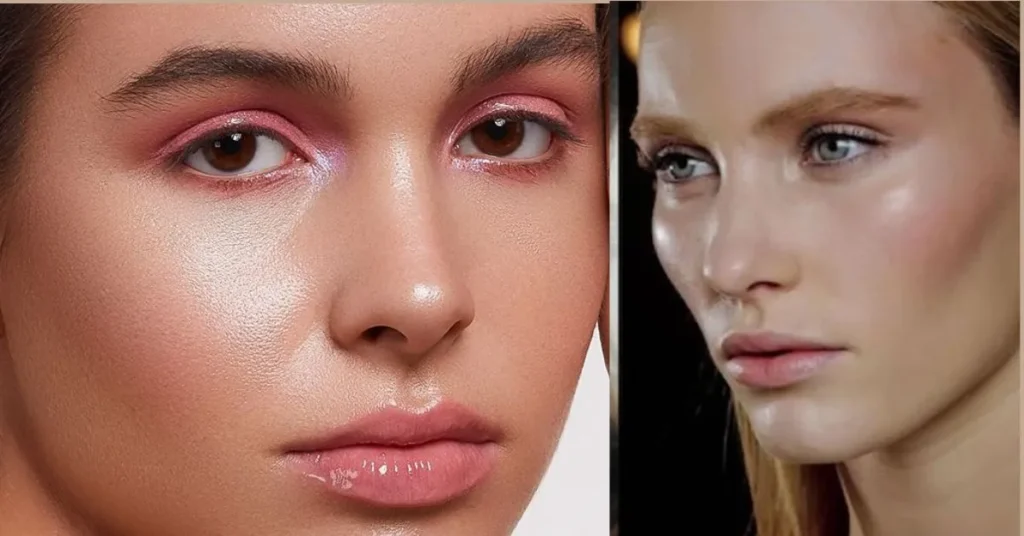
What is oily skin?
Oily skin is characterized by excess sebum production. This gives an appearance that looks shiny and greasy, particularly in the T-zone area. It is susceptible to acne and blackheads. It can also be more resistant to wrinkles and fine lines due to its natural moisture barrier.
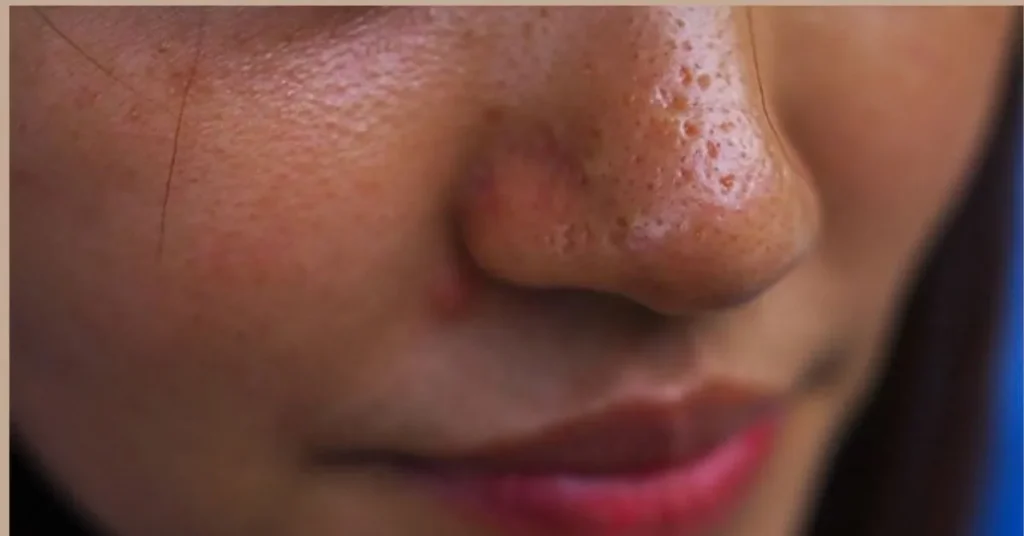
Comparison Table: Dewy Skin vs. Oily Skin
| Feature | Dewy Skin | Oily Skin |
| Appearance | Natural, healthy glow | Greasy, shiny surface |
| Skin Texture | Smooth, hydrated | Greasy, may feel heavy |
| Cause | Proper hydration and care | Excess sebum production |
| Common Issues | None unless overhydrated | Acne, clogged pores, excessive shine |
| Best Skincare Approach | Hydrating, gentle care | Oil-controlling, deep cleansing |
How to achieve dewy skin?
To achieve dewy skin, the aim is to hydrate and feed your skin properly. Following are a few ways to enhance your natural glow:

Best Products for Dewy Skin:
- Hydrating Serums: This generally contains hyaluronic acid or glycerin that draws moisture into the skin.
- Moisturizers: Lightweight, non-comedogenic moisturizers provide a balance between moisturizing and avoiding clogged pores.
- Facial Oils: natural oils, rosehip, or argan oil, which will help lock this moisture in and leave your skin radiantly finished.
- Highlighters: Subtle highlighting products can also be used to accentuate the natural glow of one’s skin.
How to Control Oily Skin?
Managing oily skin is basically finding a balance in oil production and maintaining hydration without overstimulating the production of oil.
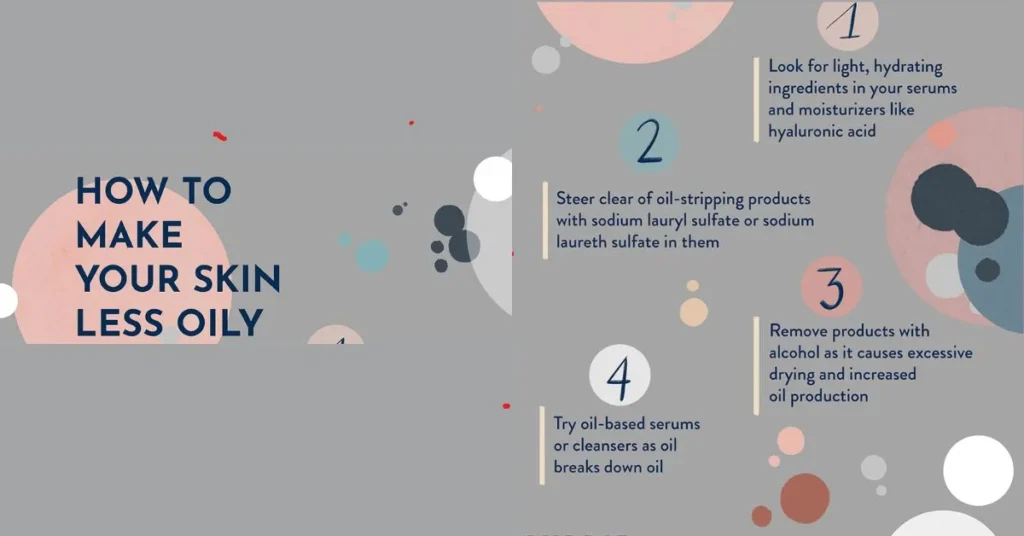
Products to Control Excess Oil:
- Oil-Free Moisturizers: Choose a moisturizer that does not contain oil, as this will help keep skin hydrated without increasing oil production.
- Mattifying Products: Apply a mattifying lotion or primer that will aid in maintaining a shine-free face while absorbing excess oil.
- Clay Masks: Clay masks work in order to draw out impurities from the skin and absorb all the excess oil.
Identifying Your Skin Type: Dewy Or Oily?
The Blotting Paper Test:
Gently press a blotting paper to your T-zone, forehead, nose, and chin after a few hours of being makeup-free. If the paper absorbs a lot of oil, you have oily skin. If there is little oil, you may have dry or normal skin.
The Morning Face Test:
This involves washing your face in the morning and not using any products. If at midday your skin feels tight and dry, then you probably have dry skin, but if it feels greasy, you may have oily skin.
Dewy Skin vs Oily Skin – Which Skin Type Ages Better? Find Out Here!
The Aging Process
How Skin Ages
- Skin aging is a process that takes place with time.
- It is influenced by the interaction of genetic and environmental factors.
- Skin aging can lead to wrinkle formation, fine lines, and even age spots.
- It can also be responsible for making the skin lose its natural moisture and elasticity.
Factors Affecting Skin Aging:
- Genetics is also a contributing factor in skin aging.
- These include sun exposure, smoking, and pollution, which also greatly contribute to skin aging.
- Other lifestyle factors that might influence skin aging include diet, exercise, and sleep.
- Other factors influencing skin aging are skin care practices and product use.
Which Skin Type is Healthier?
Both dewy and oily skin can be healthy in their own right; for that, it depends on management. Dewy skin largely is a sign of some good hydration and nourishing of the really something that is highly inhaled by the skin in achieving youthful and radiant skin. Oily skin is definitely prone to acne and, generally, breakouts that are actually just from sebum overproduction; all the same, it can also stand a chance of being one of the healthy ones with the right skin care involved in the process.
It is also worth mentioning that both skin types face challenges. Dewy skin needs to be taken care of to avoid over-hydration, while oily skin needs to have good oil-control methods to keep it in balance.
Skincare for Healthy Aging
Tips for All Skin Types
- Apply sunscreen daily to prevent skin damage from UV rays.
- Use a mild cleanser and moisturizer appropriate for your skin type.
- Exfoliate regularly to remove dead skin cells and renew cell turnover.
- Apply a serum or a treatment product with antioxidants and retinol.
Skincare by Age
- In your 20s: prevent premature aging by wearing sunscreen and taking antioxidants.
- Your 30’s: target fine lines and wrinkles with retinol and peptides
- Hydrate and plump the skin with hyaluronic acid and ceramides in your 40s.
- In Your 50s: Aim for vitamin C and niacinamide, which work well to target age spots and hyperpigmentation.
Dewy Skin and Oily Skin in Different Weather Conditions
- Dewy Skin And Humid Weather
Dewy skin can be radiant in humid conditions since the moisture in the air supplements the natural hydration of your skin.
- Oily Skin in Hot Climates
For example, oily skin becomes even shinier in hot weather because the heat makes more sebum be produced.
FAQs:
1. How to find out whether your skin is dewy or oily?
If you are not sure whether you have dewy skin or oily skin, just a simple test will suffice. Press a tissue on your face after an hour of waking up in the morning. If the tissue feels dry because it absorbed all moisture, you most likely have dewy skin; if it is oily, then you have oily skin.
2. Can oily skin be remade into dewy?
While you can’t completely change your skin type, you can improve the appearance of oily skin by following a proper skincare routine and using the right products.
3. What are the key ingredients that will give one dewy skin?
Hyaluronic acid, glycerin, and ceramides are excellent ingredients that will help hydrate the skin and give it a plumper appearance.
Conclusion:
Let us not forget that, in the battle between dewy skin versus oily skin, both are natural skin types and are valid. Dewy skin is about keeping a healthy look, radiant with proper hydration, while oily skin involves different ways of managing the excess oil. Understanding your skin type and adopting the right skincare routine will help you achieve a healthy, radiant complexion that suits your needs.

